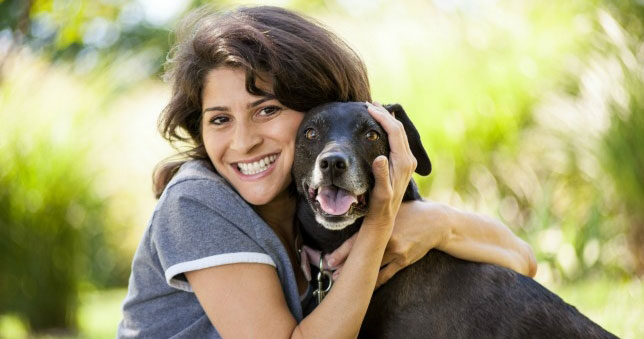How to Prepare for a Vacation Without Your Dog or Cat
June 16th, 2014 by Cherished Companions Animal Clinic

You’re counting down the days until a great vacation. Unfortunately, you can’t take your dog or cat on your trip…
Don’t worry! There are steps you can take to make your time away less stressful for you and your pet.
Below you’ll find tips from Dr. Melanie how to prepare for a vacation without a dog or cat, including how to:
- Plan your pet’s care
- Make your pet more comfortable while you’re away
- Make your return easier
Plan ahead
- Explore your pet’s options for care. In Castle Rock, you have many options: local boarding kennels, pet sitters, a friend’s or relative’s house, or a responsible neighbor or friend to check in. (Cats tend to do better in their own environments; though, we know this isn’t always possible.)
- Make boarding or sitting plans well in advance. Schedules for good pet sitters and kennels fill up fast, especially during the summer months and around the holidays in Castle Rock. The sooner you can reserve a spot, the better.
- Help your pet get familiar with the boarding option you’ve chosen. Ask the kennel if they have free days in which you can visit and make sure your pet feels comfortable. If your dog will be staying with a friend or relative, be sure to do a “play date” or two at that person’s house to get your dog more familiar with the surroundings and his or her new pack. If you’ve hired a pet sitter or a person to check in, have that person come over several times before your trip, so your pet feels more relaxed.
- Get your pet vaccination records in order and have them handy, no matter who is watching your pet. For dogs, most kennels require proof of the Bordetella vaccination, the rabies vaccine and the DA2PP (distemper) vaccination. For cats, kennels require the FELV vaccination and typically the rabies vaccine. Ask in advance which vaccinations are required and how current they need to be.
- If any of your pet’s vaccinations have lapsed, visit your veterinarian at least five days before boarding begins. Vaccinations, such as the Bordetella shot, take five days to become active and provide immunity. (If your pet doesn’t get the vaccines in time, he or she won’t be immune.) Some Castle Rock kennels require vaccinations seven days in advance, so be sure to check your kennel’s rules.
Prepare for the unexpected
- Always put together an emergency sheet for your pet’s caretaker. Include:
(1) Your contact information while you’re traveling
(2) The name of your pet’s veterinary clinic
(3) Your veterinarian’s phone number and address
(4) Contact information for the nearest 24-hour pet hospital, in case your pet requires emergency care after hours. - On your emergency sheet, specify what types of decisions the caretaker is allowed to make for your pet up to a specific dollar amount. Or, you may want to note that you want to be called before anything is done and how to get a hold of you. (Before you leave, be sure your caretaker is comfortable with whatever decision-making power you want to give to him or her.)
Make your dog or cat more comfortable
- Keep your pet’s food consistent, if possible.
- Take your pet’s bed, a familiar toy and/or an old shirt that smells like home if your pet is going to a kennel or to another person’s house. (Check with your kennel to make sure they don’t have any restrictions.)
- Chat with your veterinarian about what you can do to help your pet relax. If you know your dog gets diarrhea when stressed, your vet may be able to give you medicine to have on hand when you get home from your trip. Your vet may be able to suggest some natural supplements to help reduce your cat’s anxiety. If you know your dog feels more secure in a thunder shirt, that’s an option too.
- Plan on spending more time with your pet before you leave. We know giving your dog or cat a lot of attention before a vacation can be tricky, but if you can build it into your schedule, it will help.
- Get your pet’s carrying case out a few days early, so your cat or dog gets used to seeing it.
What to expect when you return
- Your cat may be aloof for several days after you return. It’s a normal reaction! As long as your cat is eating and using the litter box, you shouldn’t have to worry. If two or three days go by and your cat is hiding and not eating, contact your veterinarian.
- Your dog may have diarrhea when you return. This is normal too. Keeping your dog’s food consistent while you’re gone can help offset the effects of anxiety, but it’s better to be prepared. If your dog has diarrhea for more than two days, isn’t eating, isn’t acting normal, or is vomiting and lethargic, contact your veterinarian.
Other articles that may interest you:
—————
—————
Cherished Companions Animal Clinic is a veterinary clinic in Castle Rock, Colorado. Specializing in the care of dogs and cats, our goal is to help you and your pet feel more comfortable, keeping your stress to a minimum.
This article is intended to provide general guidance on how to prepare for a vacation without your dog or cat. If you have specific questions or concerns, please contact your local veterinarian. (If you live in or around Castle Rock, we welcome your call: 303-688-3757.)
© 2014, Cherished Companions Animal Clinic, All Rights Reserved
